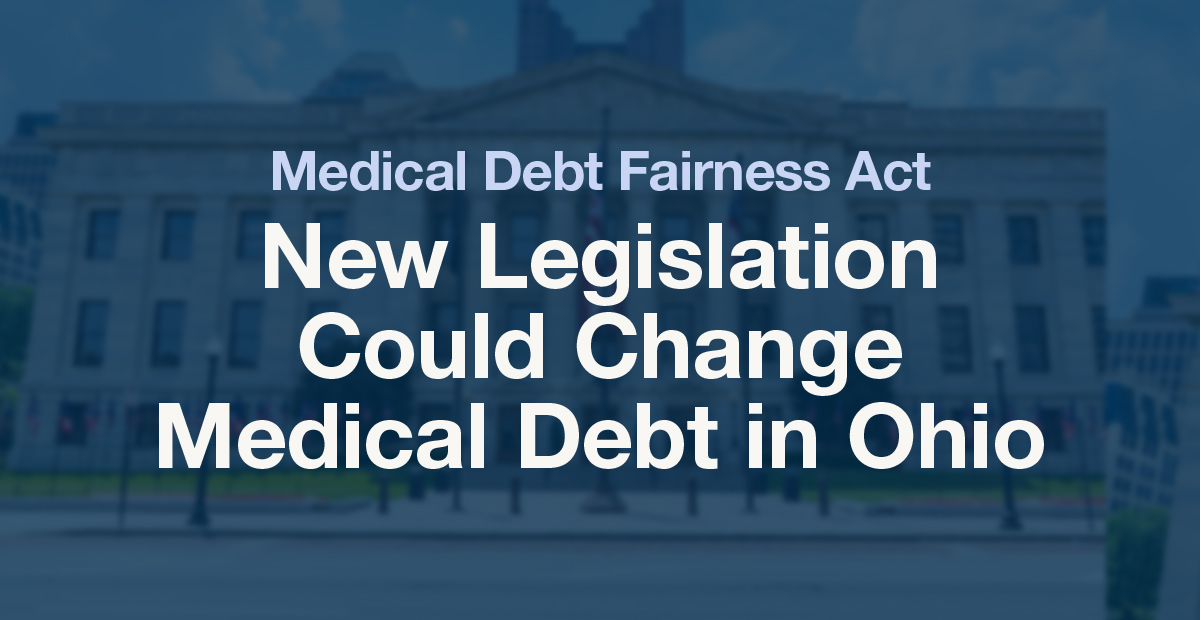Understanding the Ohio Medical Debt Fairness Act: What It Means for You
Posted in Health & Wellness, In the news on May 7, 2025

Medical debt is a burden too many Americans carry. It messes with your finances, your mental health, and even your ability to get the care you need. In Ohio, state representatives Michele Grim (D-Toledo) and Jean Schmidt (R-Loveland) want to change that with the Ohio Medical Debt Fairness Act. Their bipartisan bill is all about cutting people some slack when it comes to paying off medical debt.
What Does the Ohio Medical Debt Fairness Act Do?
Here’s the rundown of what the bill is trying to achieve:
- Capping Interest Rates at 3%
- Right now, if your medical debt goes to collections, you could be hit with interest rates of 8% or more. This bill would bring that down to just 3% per year. That’s a huge difference when you’re trying to dig out from under a pile of medical bills.
- Keeping Medical Debt Off Credit Reports
- This is a big one. If this bill passes, hospitals and debt collectors wouldn’t be able to report medical debt to credit agencies anymore. No more tanking your credit score because of an ER visit or an unexpected surgery. It means one less thing hanging over your head while you try to get back on your feet.
- Ending Wage Garnishment for Medical Bills
- Ever have a chunk of your paycheck disappear to pay off medical debt? This bill would put a stop to that. No more hospitals or third-party collectors dipping into your earnings.
Why This Matters
Medical debt is everywhere. In fact, 20 million Americans are dealing with it right now, with a staggering $220 billion in unpaid medical bills hanging over their heads. A survey by the Journal of the American Medical Association found that 18% of Americans have medical debt in collections. In Ohio, 7 out of 10 people either have medical debt themselves or know someone who does.
Even people with health insurance aren’t off the hook. About 47% of adults say they find it hard to afford healthcare costs. Around 9% of adults in the U.S., or roughly 23 million people, owe more than $250 in healthcare debt. If you’re uninsured or low-income, the struggle is even more real, with 85% of uninsured adults having a hard time covering medical bills.
Real Stories, Real People
During the announcement, Ohioan Rachel Doan shared her experience. In 2010, her son Luke was diagnosed with cancer. Her family’s first bill? A whopping $125,000. That was just the beginning. Fifteen years later, she’s still making monthly payments, and some of those bills are still sitting on her credit report.
Rachel’s biggest fear is that her son, now a young adult, will avoid getting medical care because he’s afraid of the cost. That’s the kind of thing this bill is trying to prevent.
Frequently Asked Questions (FAQs)
- Does the credit reporting ban apply to existing medical debt?
- No, it only applies to new medical debts incurred after the bill is passed.
- Will the wage garnishment ban stop existing garnishments?
- Only new garnishments for medical debt would be stopped; existing ones would not be automatically reversed.
- Does the 3% interest cap affect current medical debts?
- The interest cap would apply only to new debts after the law is enacted.
- When would these changes take effect if passed?
- The bill is currently in committee, so there’s no set date yet, but it would likely take effect within months of being signed into law.
- Are out-of-state providers included under this law?
- The law only applies to debts with providers in Ohio.
- How will consumer reporting agencies be held accountable?
- The bill outlines civil actions against agencies that fail to comply, allowing consumers to seek removal of incorrect listings.
- What recourse do consumers have if a hospital or collection agency violates the law?
- Consumers can file a civil lawsuit to have the debt voided from their credit report if it was improperly reported.
- Could this affect hospitals’ ability to collect on debts?
- Potentially, yes. Providers may need to adjust their billing practices to comply with the new law.
What Happens Next?
The Ohio Medical Debt Fairness Act is heading to committee for review. It’s not about wiping out medical debt entirely, but it’s definitely about making it less punishing. If it passes, Ohioans could get a real break from crushing interest rates, credit score hits, and paycheck grabs.
More than just easing the burden, this bill represents a shift in thinking away from penalizing people for getting sick and toward protecting them from lifelong financial ruin. If successful, it could set a precedent for other states, proving that medical bills don’t have to lead to lasting hardship.